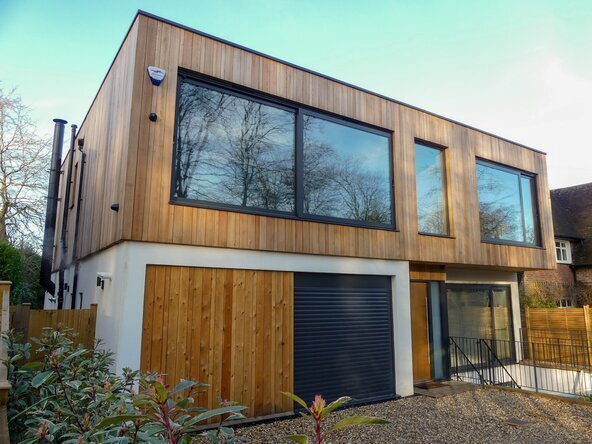
Which lenders offer non standard construction mortgages?

Getting a mortgage on a property with non-standard construction does not have to be complicated. You just need to know which lenders have an appetite to lend on unusual properties.
Over the years, Trinity Financial's brokers have established an extensive network of lenders willing to offer mortgages on unique properties. Here's how we would guide you in pursuing a mortgage for a non‑standard construction home:
What is a non‑standard construction property?
Properties are deemed non‑standard construction (NSC) when they aren't built with traditional brick or stone walls and tiled/slated roofs. Common examples include:
Timber or steel-frame homes)
Prefab or reinforced‑concrete (e.g., Reema, Orlit)
Thatched, flat, or unconventional roofs
Listed buildings or heritage structures
Glass‑wall, eco‑build, or high‑rise flats.
Why you need a specialist mortgage broker
Most high street lenders shy away from NSC due to:
Valuation challenges – harder to assess market value
Insurance hurdles – expensive or restricted cover.
Resale risk – smaller pool of future buyers & lenders.
Trinity Financial specialises in this space. We have access to around 30–40 specialist lenders who offer competitive deals for different NSC types.
Lenders likely to help
You do not always need to use a lender specifically offering specialist mortgages to get funding for unusual or non-standard construction properties.
Trinity Financial recently secured a mortgage through a high street lender after the property was initially declined due to the amount of wood used in its construction. However, we provided supporting documentation to demonstrate that the property was well-built and had a strong resale value.
Ecology Building Society – supports eco‑friendly, timber‑frame renovation and self‑build mortgages. Competitive green incentives.
Specialist NSC lenders – focused on prefab, concrete, thatch, etc. Trinity knows who caters to each type.
Some mainstream lenders/building societies may consider certain NSC types on a case‑by‑case basis, usually with higher fees or stricter criteria.
What criteria do lenders use?
Deposit requirements
Expect to need 25–40% deposit, depending on NSC type — for instance, prefab concrete homes often need 30–40% due to higher risk.
Detailed property survey
A RICS‑approved surveyor must verify the build’s integrity, condition, and insuranceability.
Insurance in place
Specialist buildings insurance is essential and may be more expensive. It must be secured before offers are issued.
Borrower assessment
Same as standard mortgages – proof of affordability, credit score, income, stability.
Special conditions
Some lenders require warranties (e.g., NHBC or similar for new builds), heritage maintenance plans for listed properties, or structural warranties for certain frames .
Is it worth buying non-standard construction?
Pros:
- Unique homes with character or eco‑credentials.
- Often priced below standard equivalents.
Cons:
- Higher deposit + interest rates
- Insurance and maintenance costs.
- Harder to refinance or resell — lenders might pull back.
Trinity Financial’s approach to non standard construction mortgages
Initial assessment – identify NSC type and required surveys.
Lender matchmaking – draw on our panel to find lenders aligned with your property.
Survey and insurance prep – advise on RICS surveyor and specialist insurance.
Application support – build a strong case including property reports, maintenance plans, and borrower credentials.
Post-offer oversight – ensure conditions are met and guide you through to completion.
What to do next with Trinity Financial?
Send over property details (type, age, materials)—ideally, with a link to the property on the estate agent's website.
We’ll run a NSC health check
Match you to 2–3 suitable lenders
Support through survey, insurance, and application
Let’s get into the specifics of your property — location, type, and your deposit — and we’ll start lining up the best mortgage path for you.
Call Trinity Financial on 020 7016 0790 to secure a mortgage or book a consultation
The information contained within was correct at the time of publication but is subject to change.
Your mortgage is secured on your property. Your property may be repossessed if you do not keep up repayments on your mortgage

Get started today
Speak to one of our mortgage experts. Book an appointment to come and see us or request one of our experts to call you.











